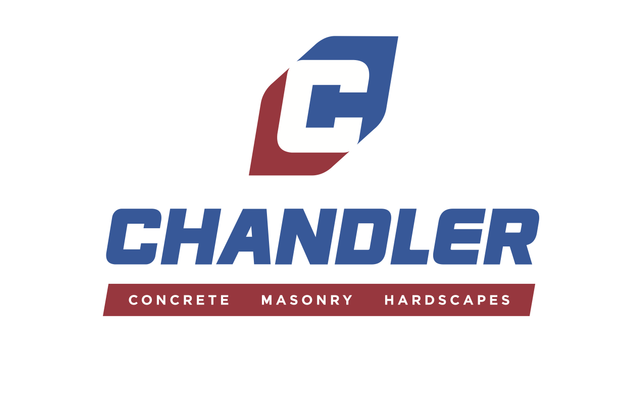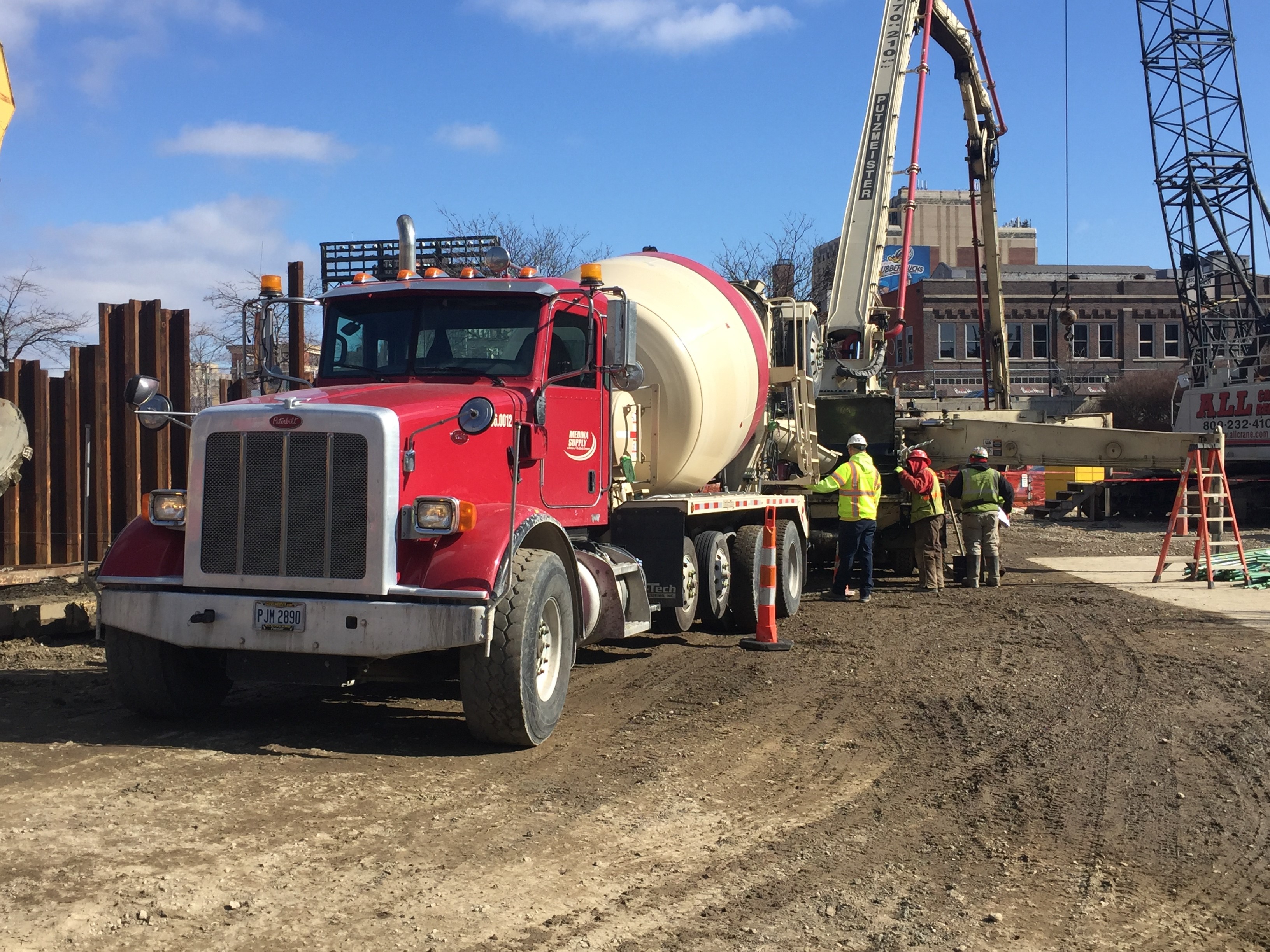The Benefits of Using Concrete Services for Sturdy Structures
Concrete solutions use a variety of advantages for constructing sturdy structures. This product is renowned for its exceptional toughness and longevity. Its resistance to environmental variables makes it a useful selection for various climates. Furthermore, concrete is often a lot more affordable in the long run. As contractors and designers significantly explore innovative applications, the capacity of concrete in design comes to be a lot more interesting. The discussion of these advantages reveals compelling insights into contemporary building techniques.

Outstanding Toughness and Resilience
Concrete is renowned for its outstanding toughness and durability, making it a preferred material in building. Concrete Companies Near Me. Its capacity to resist and withstand heavy lots contortion under stress is unmatched, which is why it is often utilized for fundamental components, sustaining frameworks, and skyscraper structures. The structure of concrete, which includes concrete, water, and aggregates, permits it to achieve high compressive toughness, often exceeding that of traditional structure products like timber or steel. This stamina guarantees architectural honesty and durability, thereby decreasing upkeep expenses in time. Additionally, concrete's durability appears in its capability to endure various tensions without giving in to wear and tear, making it ideal for varied applications, from bridges to residential homes. Overall, the robust features of concrete contribute to its reputation as a trusted selection for building long-lasting structures that stand the examination of time
Resistance to Environmental Variables
Several construction products are susceptible to ecological deterioration, concrete exhibits amazing resistance to numerous elements such as dampness, temperature variations, and chemical direct exposure. Its inherent buildings make it particularly appropriate for varied applications, from residential buildings to big infrastructure tasks. Concrete's low permeability restrictions water absorption, decreasing the danger of damages from freeze-thaw cycles and preventing mold and mildew growth. In addition, it preserves architectural honesty when exposed to extreme temperatures, making it excellent for regions with severe environments. Concrete additionally stands resistant versus chemical attacks, including acids and sulfates, which can break down various other products. This resistance is better enhanced by the use of specialized ingredients and therapies throughout the blending procedure. Generally, concrete's durability in the face of environmental difficulties assurances durability and dependability, making it a recommended selection for architects and contractors aiming to build enduring structures.
Cost-Effectiveness Over Time
Cost-effectiveness in concrete solutions shows up as a long-lasting investment that noticeably profits structures. This method not only lessens maintenance costs yet likewise improves energy performance, bring about significant cost savings in time. Understanding these factors is essential for examining the overall worth of long lasting concrete buildings.
Long-Term Investment Benefits
Purchasing durable frameworks returns significant long-term advantages that extend past preliminary expenses. Concrete solutions, recognized for their effectiveness, add to a structure's longevity, ultimately decreasing the overall cost of possession. By using top quality products and professional workmanship, owners can anticipate fewer repairs and substitutes in time. This integrity equates right into a stable property value, making concrete buildings a wise monetary selection in the property market. In addition, structures developed with concrete are frequently extra energy-efficient, further improving their cost-effectiveness. Because of this, the preliminary financial investment in concrete services can cause substantial cost savings and better returns over the years, verifying the value of selecting durable choices for durable building tasks.
Reduced Upkeep Expenditures
The durability of concrete frameworks not just enhances possession worth but also significantly lowers maintenance costs gradually. Unlike materials that deteriorate promptly, concrete shows exceptional durability versus numerous ecological variables, such as moisture, temperature fluctuations, and insects. This intrinsic longevity converts to less repair services and substitutes, thereby minimizing long-term costs. Additionally, the low absorption price of concrete restrictions concerns connected to mold and mildew and mold, which can require costly remediation efforts. Regular maintenance is usually lowered to straightforward cleansing instead of considerable fixings, better adding to cost-effectiveness. Consequently, homeowner spending in concrete services can expect a significant decline in upkeep budget plans, making concrete an economically audio option for resilient structures.
Power Performance Cost Savings
As energy performance ends up being progressively important in construction, concrete frameworks stick out for their ability to boost lasting cost savings on utility costs. The thermal mass of concrete enables structures to maintain steady indoor temperature levels, reducing the demand for heating and cooling down systems. This building decreases power usage and translates to decrease energy expenses over time. Furthermore, concrete's durability adds to less replacements and fixings, also boosting cost-effectiveness. Modern concrete innovations, such as shielded concrete forms and energy-efficient mixes, boost insulation and power performance, leading to considerable savings. Subsequently, investing in concrete services not just profits the atmosphere through reduced power use yet also uses significant financial advantages for homeowner in the future.
Adaptability in Style and Application
Concrete's convenience in layout and application enables a vast array of customizable aesthetic options, making it suitable for various building styles (Concrete Contractors Pearland TX). Its ability to adjust to diverse structural applications enhances its functionality in both business and household tasks. This adaptability settings concrete as a favored material in modern construction
Customizable Visual Alternatives

Varied Structural Applications
Discovering the diverse architectural applications of concrete discloses its exceptional adaptability in design and capability. Concrete is used in different types, consisting of structures, walls, pavements, and decorative components, permitting it to adjust to countless architectural styles. Its inherent stamina and longevity make it suitable for skyscrapers, bridges, and infrastructure jobs. Concrete can be molded right into elaborate shapes, suiting ingenious designs while keeping structural honesty. This adaptability also includes residential applications, such as patios, driveways, and retaining wall surfaces. In addition, innovations in modern technology have actually caused the advancement of specialized concrete mixes, enhancing efficiency in specific environments. This comprehensive applicability underscores concrete's important function in contemporary building, meeting both practical and visual needs successfully.
Reduced Maintenance Needs
Lots of homeowner value the low maintenance needs related to concrete structures. Unlike products such as wood or metal, concrete is normally immune to insects, rot, and corrosion. This resilience considerably lowers the regularity and expense of fixings with time. Splits and surface area wear can be conveniently addressed with minimal effort, commonly requiring only periodic securing or resurfacing.Additionally, concrete structures do not require normal painting or discoloration, additional adding to their reduced maintenance. This particular is specifically helpful for commercial homes, where upkeep expenses can promptly accumulate.Furthermore, concrete is less vulnerable to weather-related damages, ensuring that structures continue to be undamaged despite environmental problems. Therefore, homeowner can delight in the long-lasting advantages of concrete, including reduced labor and upkeep expenses, allowing them to allot resources to other necessary locations of their homes. Inevitably, the reduced upkeep requirements of concrete make it an appealing option for constructing sturdy structures.
Eco-Friendly Building Material
As the demand for sustainable building methods expands, concrete emerges as an environment-friendly structure product that supplies countless ecological advantages. Its production can incorporate recycled materials, such as industrial by-products and waste aggregates, which reduces the need for virgin sources and decreases land fill waste. Additionally, concrete has the capacity to manage temperature, thereby enhancing power performance in structures. This thermal mass result can bring about reduced power intake for cooling and heating, additional minimizing a framework's carbon footprint.Moreover, concrete is long lasting and long-lasting, which implies structures require less repair services and restorations over time, why not try here resulting in much less resource usage overall. Advances in modern technology have actually also led to the growth of low-carbon and environmentally friendly concrete formulas that lower greenhouse gas discharges during manufacturing. By prioritizing concrete in building and construction jobs, contractors can contribute to a much more sustainable future while making certain the durability and strength of structures.
Boosted Property Worth and Appeal
A sound concrete structure especially improves property value and allure, commonly making it more eye-catching to potential customers or tenants. Concrete's longevity and low upkeep demands add considerably to long-term investment returns. Properties featuring high-grade concrete buildings often tend to attract greater deals due to their viewed security and longevity. Additionally, cosmetically pleasing concrete designs, such as stamped or colored surfaces, can elevate aesthetic charm, developing a positive first impression.Moreover, concrete structures usually meet modern building requirements, which can be a marketing point for ecologically mindful customers. The power efficiency associated with well-insulated concrete likewise interest buyers wanting to minimize energy expenses. On the whole, purchasing concrete services not only reinforces the structural stability of a residential or commercial property however likewise improves its marketability, leading to enhanced building worth and a competitive edge in the property market.
Frequently Asked Inquiries
For how long Does It Take to Heal Concrete Appropriately?
The treating procedure of concrete commonly takes regarding 28 days to achieve ideal toughness, although preliminary setup occurs within hours. Factors like temperature level and humidity can affect the treating period and efficiency considerably.
What Sorts Of Concrete Solutions Are Available?
Numerous kinds of concrete solutions exist, including putting, developing, ending up, resurfacing, and ornamental concrete. Concrete Contractors Pearland TX. Companies might also use repair, restoration, and installment of concrete frameworks, catering to both business and residential requirements
Can Concrete Be Recycled After Its Usage?
Concrete can certainly be reused after its use. When processed, it can be repurposed for brand-new building tasks, decreasing waste and advertising sustainability within the building and construction market while preserving architectural integrity in new applications.
What Are the very best Practices for Pouring Concrete?
When pouring concrete, best techniques include correct website preparation, ensuring optimal temperature conditions, utilizing ideal mixing ratios, preserving constant putting techniques, and allowing sufficient treating time to boost strength and sturdiness of the ended up framework.
Exist Any Alternatives to Conventional Concrete?
